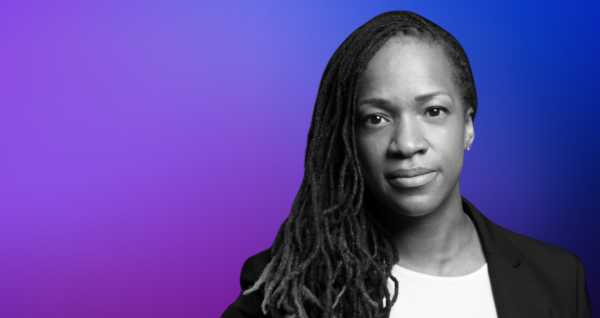We are thrilled to have a conversation with Nefertiti J. Alexander, partner at Kasowitz Benson Torres LLP and co-chair of Sanctuary’s Legal Advisory Council. Nefertiti has handled pro bono matters involving criminal defense, labor trafficking, and immigration. Her practice at Kasowitz focuses on complex commercial litigation, white-collar defense, and government investigations.
How did you first learn about Sanctuary for Families?
I have known about Sanctuary for more than a decade. When I was an associate at my former firm, I heard about the great work that Sanctuary was doing and was eventually invited to a Legal Advisory Council (LAC) meeting by Bill Gorin, one of my mentors. Through the LAC meetings, I learned more about Sanctuary’s mission. I also volunteered with Sanctuary for its annual Holiday Drive, putting together holiday presents for Sanctuary’s clients and their families. I have always felt aligned with Sanctuary’s holistic approach to helping more vulnerable members of our community.
Sanctuary has a very strong relationship with Kasowitz, and the firm has taken on so many pro bono cases for us. Can you elaborate on this partnership?
Kasowitz has a long history of working on pro bono and other community projects with Sanctuary. Our partner David Abrams and counsel Teresa Matushaj run our pro bono program, and our partner Sarah Leivick has also been closely involved with Sanctuary. When I joined the firm in 2018, I was so impressed by the Kasowitz attorneys devoting significant resources and time to Sanctuary’s pro bono matters, and took on a pro bono matter through Sanctuary myself. It’s a great opportunity for our associates to take on leadership roles in cases, develop client relationships, and make a difference in the community. The work is incredibly rewarding.
You are a co-chair for the LAC now. How did that come about?
As part of Kasowitz’s long-standing relationship with Sanctuary, we began working with Sanctuary on its Incarcerated Gender Violence Survivors Initiative (IGVSI). Through that initiative, I started to work closely with Ross Kramer and Kayla Abrams at Sanctuary. When Sanctuary asked me to co-chair the LAC, I jumped at the opportunity.
As a co-chair of the LAC, are there any particular goals you would like to achieve?
I am deeply committed to diversity and sit on the diversity committee at Kasowitz. The LAC would love to welcome a wide array of members, whether in-house or at firms, from different economic, racial, and ethnic backgrounds and representing a wide range of ages. When you bring those perspectives together, we create a stronger LAC.
Earlier in the year, Ross, Kayla, and I gave a presentation at Verizon Communication’s New Jersey headquarters to raise more awareness about Sanctuary; it was very well received. A Verizon Communications in-house lawyer participated in a client visit at a correctional facility and joined us at our recent LAC meeting. We are developing ways to collaborate, and it’s been great to help develop that relationship.
What kind of pro bono work have you done with Sanctuary?
Kasowitz has worked on a number of matters with Sanctuary, including orders of protection and divorce. One case that I worked on that I would like to highlight is the case of Mrs. P., in which we sought parole for one of Sanctuary’s clients through the IGVSI. We sought parole, but close to our client’s release, she got a misconduct ticket that threatened her release date. Our team had to move quickly to represent her in a disciplinary hearing, one of the first of its kind in New York State, where outside attorneys could represent their client. We also represented her at a rescission hearing, where we persuaded the parole board that her release date should not be jeopardized by the misconduct ticket, and spoke in depth about the support, including shelter, work opportunities, educational opportunities, and clinical services, that Sanctuary would provide our client upon release.
Is there anything else you would like people to know about Sanctuary?
Sanctuary for Families is a unique organization. Not only is it helping survivors advocate for themselves and pursue their legal rights, but it provides so much support to empower clients and enable them to build a successful future. All of that is being done within a trauma-informed framework, whether in the court system or through psychotherapy, education, or mediation.
Sanctuary’s 360 support for clients is incredibly admirable and worthy of support. This is why, as a LAC co-chair, part of my mission is to ensure that LAC includes a broad base of legal professionals. When we uplift our most vulnerable, we strengthen the community for everyone. In an area that can be fraught with politics, Sanctuary helps us to focus on the human perspective.
